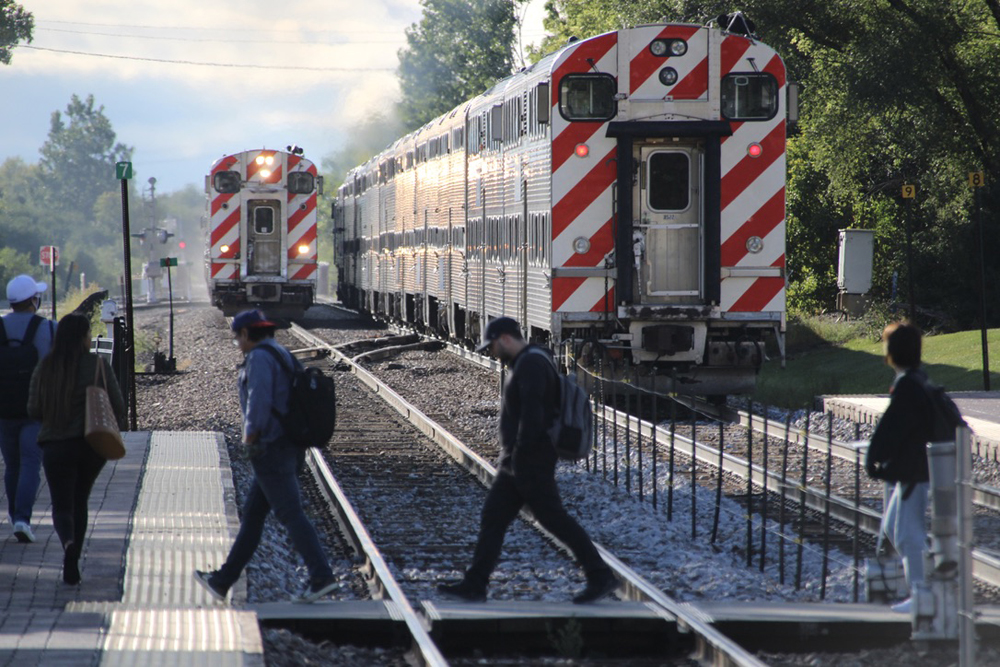
WASHINGTON — A federal appeals court has turned down a suit by a group of Chicago suburbs seeking review of the Surface Transportation Board decision approving the Canadian Pacific Kansas City merger.
In a decision announced today (June 20, 2025), the U.S. Appeals Court for the District of Columbia District denied the request by the Coalition to Stop CPKC to review the decision, saying the board “thoroughly considered the merger’s potential environmental harms and reasonably concluded the merger was in the public interest.”
The coalition — consisting of DuPage County, Ill., and the communities of Bartlett, Bensenville, Elgin, Itasca, Hanover Park, Roselle, and Wood Dale — had organized shortly after the merger was proposed, expressing concerns about traffic and safety impacts. At one time, the communities sought up to $9.5 billion in mitigation, such as grade crossing separation projects and reconstruction of infrastructure in Elgin [see “Chicago suburbs seek …,” Trains News Wire, March 1, 2022].
The group filed suit seeking a review of the STB decision shortly after approval of the Canadian Pacific-Kansas City Southern merger in March 2023. The group argued the board’s decision was arbitrary and capricious — which would qualify as grounds for review — because it had failed to adequately address the environmental impacts of the merger, and inadequately explained the public-interest reasoning of its decision. They had sought another environmental impact statement specifically addressing impacts in the Chicago area, as well as stronger mitigation requirements [see “Chicago suburbs sue …,” News Wire, May 12, 2023].
But in its per curiam decision, the three-judge panel writes that “the Board did a commendable job of addressing each of the Coalition’s and other stakeholders’ many comments. The Coalition may disagree with some of the Board’s judgments, but it is not our role to second-guess the Board’s reasonably explained choices.”
Notably, one of the precedents cited by the decision is the recent Supreme Court ruling in the Uinta Basin Railway case [see “Supreme Court rules in favor …,” News Wire, May 29, 2025]. The judges note that decision directs the court to “afford substantial deference to the agency” and to “not micromanage the agency choices so long as they fall within a broad zone of reasonableness.”
The three-judge panel — Karen LeCraft Henderson; appointed by George H.W. Bush in 1990; Neomi Rao, appointed by Donald Trump in 2019; and Bradley N. Garcia, appointed by Joe Biden in 2023 — said it would not publish a full opinion, which indicates the court did not consider the matter to require a more complete explanation.
An STB spokesman said the agency had not comment beyond its prior court filings. Trains News Wire has also requested comment from the Coalition.
— Updated June 23 at 10:12 a.m. with STB declining further comment.






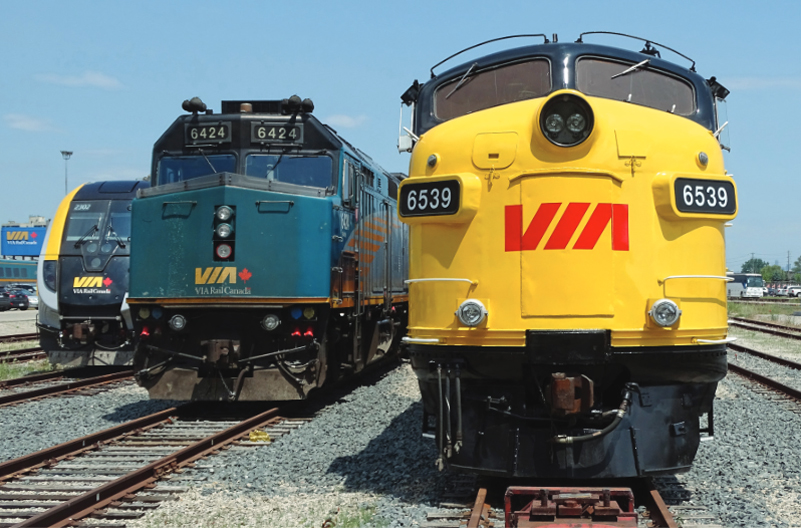
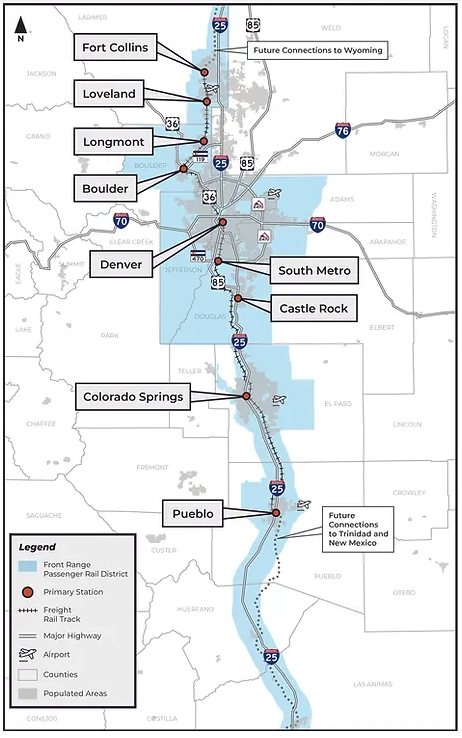
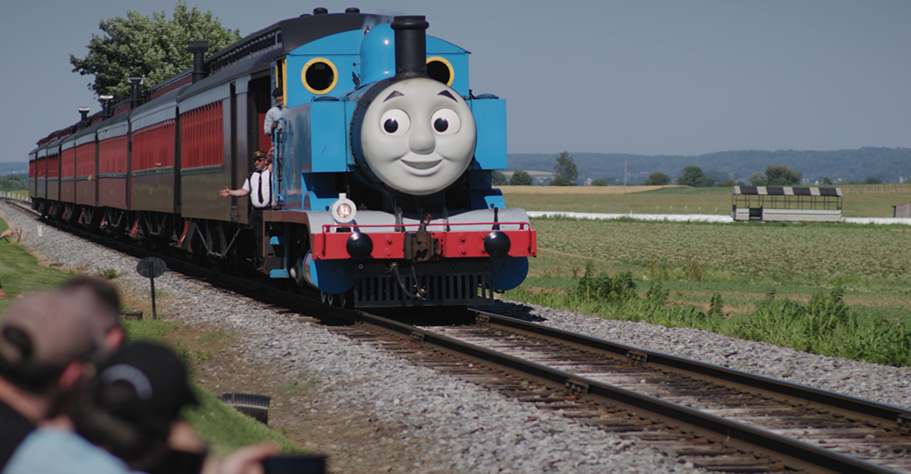
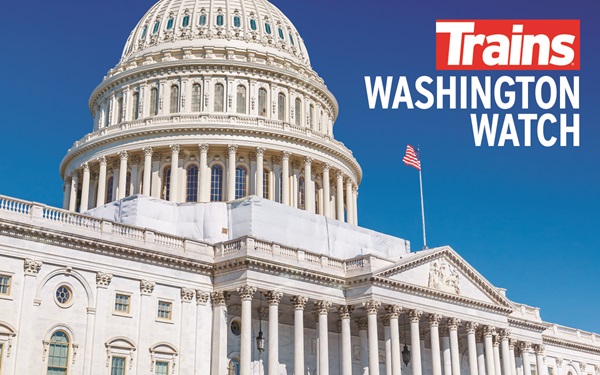




While I agree with the appeals court decision, and I do think that the remediation ask is way over the top, having lived in the area at one time, I do know what the impacts are when a one time infrequently used rail line is suddenly thrust back into major service without some kind of remediation for the auto traffic.
The Chicago area has seen many railroad lines go into disuse, get within a hair of being pulled up, just to be resurrected into full service. But in the interim, the population kept growing in and around the line in question.
But it is not the host railroads responsibility to remediate for increased auto traffic when it comes to service, it is the local or regional transporation & highways body that deals with that.
Asking the STB to force the merging railroads to have to pay to remediate crossings and pay for overpasses is not supported by the law. Only when it has been in the railroads interest have they offered to assist in paying to get an auto/truck supported remediation in place.
So now that the decision has been made, this “coalition” needs to refocus their collective energies into working with their legislative & congressional delegations to start planning for a remediation effort.
Once they can get a plan together, they can work the process of how to fund it over the intervening years.
People want what they have, what they are used to. To which I say, conditions change, deal with it. You don’t have a proprietary interest in someone else’s property.
If a rail line adds trains, I can understand that some people don’t like the change. Either because they hear more trains, or because crossing gates go down more frequently. The question is, what remediation is due to them.
It’s like the condo we live in in Wisconsin. Some people don’t like (i.e. are screaming mad) about a change we made to the landscaping. But if that change had happened before they bought the condo, was in place when they moved in, they’d be fine with it.
I hang out in the Chicago suburbs a lot, mostly for train watching. There are countless beautiful homes (single-family, apartment, or condo) in gorgeous suburbs that have a zillion trains with few if any road overpasses.(Elmhurst, Glenview, Hinsdale and many other suburbs). If CPCK has added freight trains on the Milwaukee West line since the merger, it’s still a whole lot fewer freight trains than on UP West or BNSF.
“it’s still a whole lot fewer freight trains than on UP West or BNSF.”
Agree 100%.
Last time I was in the area, I noticed that downtown Wheaton has 2 ice cream shops along the UP West. One on the north side, one on the south side. A nice summer night will find quite a few families at each enjoying the moment.
The chimes suddenly toll and coming in at 45-50mph plus from the west is a double stack with 4 engines in the front at full throttle. Does anyone run off? No.
People just casually sit on the benches and watch it go by with its air brake squeals and suspension/couplers groaning. It is simply considered a part of life. The train finishes passing by and people return to their conversations as they had to pause for all the train noise.
The crossing guards go back up, the chimes stop ringing and silence over ice cream returns.
This particular town has had this happening since the building of the Galena & Chicago Union and no one complains, It has been that way for 175 years.
I have lived next to a railroad for 42 years now, I want more trains, sometimes I make it a point to go to the tracks and watch them go by.
I totally agree with you Charles. Do not buy a house even remotely close to the tracks if you don’t like trains. I will also add people buy houses in flight paths to airports then complain about the noise. Again if you don’t like airport noise, do not buy a house even close to the flight path.
If they don’t like trains they shouldn’t buy a house near a railroad. Their responsibility.
I don’t care if it was poor minorities in Cleveland (at the time of the Conrail breakup to CSX and NS) or rich white people in the Chicago suburbs. Two sides of the same coin.